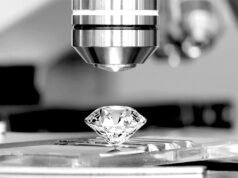In the last post I discussed hypothyroidism, a condition that is caused by an underactive thyroid gland, or an overactive thyroid gland. The thyroid gland is a small, butterfly-shaped gland situated at the front of the neck, and it produces the thyroid hormones: thyroxine (T4) and triiodothyronine (T3). These hormones regulate the way our bodies use energy, and they are essential for everyday life.
Hypothyroidism, also known as Hashimoto’s disease, is an under-diagnosed condition that can cause an array of symptoms including vague fatigue, weight gain, depression, and hair loss. It is estimated that over two million people have undiagnosed hypothyroidism in the US alone. The symptoms of hypothyroidism are so mild that many people don’t even realize they have it. It is thought that the key to a successful recovery is to find a balance between the body’s need for thyroid hormone and the immune system’s ability to keep the disease in check.
For most people, hypothyroidism is an under-diagnosed condition for which they are not receiving the necessary medical attention. This is due to the fact that the condition is often misdiagnosed by doctors as “lacking energy” or “low metabolism”, and is therefore not treated. Ultimately, this leads to a worsening of the condition. There are a number of ways you can recover from hypothyroidism, but it is often helpful to start by increasing thyroid hormone levels.

Before and after photos
Is hypothyroidism curable? Thyroid hormones must be taken for the remainder of one’s life by the majority of individuals.
Julia is an exclusionary character in this story:
Good day, Andreas.
I just wanted to let you know that after beginning LCHF, I was healed of hypothyroidism.
I began eating LCHF in August of last year and had dropped 20 pounds by the end of the year. Then I began weaning myself off of levothyroxine, and now I’m free of it, and my tests are better (I take blood tests every six weeks).
I hope this inspires and provides hope to others, since I know many individuals who suffer from hypothyroidism and obesity!
Warm regards
Julia
Note
Julia, I congratulate you!
This is not your typical tale, in my opinion. Most individuals taking levothyroxine (thyroid hormone) should keep taking it if they transition to the LCHF diet. Some people may need to decrease their dosage substantially, while others may need to increase their dose. And many people stick to the same dosage.
There are, however, always exceptions.
It’s likely that Julia’s considerable weight loss led to a decrease in the quantity of hormone required. Maybe the body’s own creation is enough.
Or she had a thyroid illness that went away when she switched to the LCHF diet. It’s possible that a change in nutrition had a role, but it’s impossible to tell for sure.
Question:
Do you have hypothyroidism and are taking medication to treat it? Are you on the LCHF diet now that you’ve been diagnosed? What went wrong?
I was able to do the following after starting the LCHF diet:
Please share your stories with us in the comments section below.
Read more
Beginner’s guide to LCHF
How to Drop Pounds
Lose weight by controlling your hormones.
Other weight-loss and health-related tales
Is contemporary wheat hazardous, according to a recent study?
PS
Do you have a success story you’d like to share with the readers of this blog? Send it to andreas@dietdoctor.com, along with your permission to publish your picture and name, or if you want to stay anonymous.
Hypothyroidism is a disease that affects the thyroid gland, located in the neck. Its symptoms include fatigue, weight gain, and lethargy. Hypothyroidism is an autoimmune disease, which means it’s caused by the body’s immune system attacking the thyroid gland. The thyroid gland is responsible for producing hormones that regulate important processes in the body, and without it, the body can’t function properly.. Read more about hypothyroidism recovery time and let us know what you think.
{“@context”:”https://schema.org”,”@type”:”FAQPage”,”mainEntity”:[{“@type”:”Question”,”name”:”How long does it take to recover from hypothyroidism?”,”acceptedAnswer”:{“@type”:”Answer”,”text”:”
It can take anywhere from a few months to a few years for someone with hypothyroidism to recover.”}},{“@type”:”Question”,”name”:”Can thyroid function be restored?”,”acceptedAnswer”:{“@type”:”Answer”,”text”:”
Yes, thyroid function can be restored with treatment.”}},{“@type”:”Question”,”name”:””,”acceptedAnswer”:{“@type”:”Answer”,”text”:””}}]}
Frequently Asked Questions
How long does it take to recover from hypothyroidism?
It can take anywhere from a few months to a few years for someone with hypothyroidism to recover.
Can thyroid function be restored?
Yes, thyroid function can be restored with treatment.
Related Tags
This article broadly covered the following related topics:
- hypothyroidism recovery time
- can hypothyroidism be cured permanently
- can hypothyroidism be cured
- can hypothyroidism be reversed
- can hypothyroidism go away on its own



